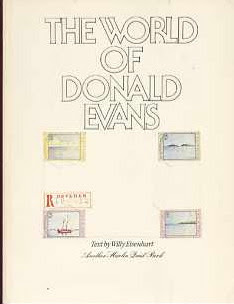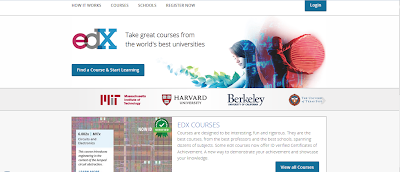Read For Free: Courtesy Of Your Local Public Library
Book lovers tend to collect books. I liked the idea of having books on my bookshelf and I believed that books mean knowledge so investing in knowledge is worth every penny. Once I have the books in my possession, I have a hard time parting with them because of the time and money I have already spent on something that gave me so much pleasure.
Nowadays, I discovered that that buying books can get pricey: A hardcover novel can easily cost over thirty dollars. Even new paper back novels can cost over fifteen dollars in the book store. Only books that are in the public domain and no longer copy right protected can be found for under seven dollars. Of course, many of those inexpensive public domain books are must reads: You can still get your Jane Austen, Mary Shelley, Crime and Punishment, Shakespeare plays and many other classics relatively cheaply, and many are thankfully still on your children's school assigned reading lists. However, these days if you want to purchase a newly published novel from an up and coming author just to experience what the craze is about, you will still need to shell out a pretty penny. If you just buy a book a week at a retail price of ten dollars per book, it will cost you hundreds of unnecessary dollars each year!
Added to the price of new books is the realization that at some point in your life, your house just doesn't have enough space to accommodate more books that you've read once and let sit for the next ten years. What you have paid thousands of dollars for can't even be sold for a tenth of your cost. Like a new car, as soon as a new book is taken home, it's value depreciates.

These days, I find myself using the public library more than ever. At the Los Angeles Public Library, you can borrow books for free, as long as you obtain a library card, which is free of charge. To get a library card, you just go to any branch library, (here is a list of all their locations) give the librarian a photo ID, your phone number, contact information and address, and you will receive a card instantly with a barcode and card number on the back.
With a library card, you can borrow most books for three weeks and renew them for up to six more, all free of charge. Of course, if you don't return the books on time, you will be charged a fee.
One of my pet peeves about the public library is the fact that most branch libraries are small and the collection they have are limited. For example, the Chinatown branch has a fairly extensive collection of Chinese books, but the other branches may have other collections. So if you walk into one branch library, you very often will not find what you want on the shelf because that volume is only carried by another branch library. At that point, you will have to drive out to a different branch, or ask the librarian to help you put that book on hold and have it delivered to your local branch library.
Luckily, most libraries have implemented technology that make borrowing books easy and hassle free. At the Los Angeles Public Library,you can find out which branch library carries your book before you even step out of your house just by logging onto the library website with your library card and access the library catalog. You can check your account to see if you have books that are due, renew them if you need more time to read the books, and find out whether you owe a fine

You can type in what you are looking for by Author name, Title name, or key words and at the click of a button, see for yourself which branch has your book and whether it has been checked out by someone else. You can go to that branch and borrow the book you want.
Better yet, if you can wait, you can use the Los Angeles Public Library website to ask the library system to put the book you want on hold and have it delivered to your local branch library. Once there, you will receive a notification by email or by phone message informing you that you book has arrived. You can then just go to the library to pick up the book. My experience with this extremely convenient system is that as long as a title is not all checked out by someone else, it should arrive at your local branch between three days to a week. If it is checked out, you will be notified of your position on the waiting list.
Most of the time, I have no need to read a particular book immediately. With a world of interesting titles on the book shelves, I can easily borrow an available book that I want to read anyway from my local branch library and read that while I wait for my book to arrive. Once you have the book you want in your possession, you can go to the library website, log in to your account to renew the book up to three more times, each time for and additional three weeks. When you are done reading, or if the book does not interest you after all, you can return it to any of the branch libraries and it will return the book to the proper branch where it came from.
Easy? Totally, and all the resources to make you smart are free.
Nowadays, I discovered that that buying books can get pricey: A hardcover novel can easily cost over thirty dollars. Even new paper back novels can cost over fifteen dollars in the book store. Only books that are in the public domain and no longer copy right protected can be found for under seven dollars. Of course, many of those inexpensive public domain books are must reads: You can still get your Jane Austen, Mary Shelley, Crime and Punishment, Shakespeare plays and many other classics relatively cheaply, and many are thankfully still on your children's school assigned reading lists. However, these days if you want to purchase a newly published novel from an up and coming author just to experience what the craze is about, you will still need to shell out a pretty penny. If you just buy a book a week at a retail price of ten dollars per book, it will cost you hundreds of unnecessary dollars each year!
Added to the price of new books is the realization that at some point in your life, your house just doesn't have enough space to accommodate more books that you've read once and let sit for the next ten years. What you have paid thousands of dollars for can't even be sold for a tenth of your cost. Like a new car, as soon as a new book is taken home, it's value depreciates.

These days, I find myself using the public library more than ever. At the Los Angeles Public Library, you can borrow books for free, as long as you obtain a library card, which is free of charge. To get a library card, you just go to any branch library, (here is a list of all their locations) give the librarian a photo ID, your phone number, contact information and address, and you will receive a card instantly with a barcode and card number on the back.
With a library card, you can borrow most books for three weeks and renew them for up to six more, all free of charge. Of course, if you don't return the books on time, you will be charged a fee.
One of my pet peeves about the public library is the fact that most branch libraries are small and the collection they have are limited. For example, the Chinatown branch has a fairly extensive collection of Chinese books, but the other branches may have other collections. So if you walk into one branch library, you very often will not find what you want on the shelf because that volume is only carried by another branch library. At that point, you will have to drive out to a different branch, or ask the librarian to help you put that book on hold and have it delivered to your local branch library.
Luckily, most libraries have implemented technology that make borrowing books easy and hassle free. At the Los Angeles Public Library,you can find out which branch library carries your book before you even step out of your house just by logging onto the library website with your library card and access the library catalog. You can check your account to see if you have books that are due, renew them if you need more time to read the books, and find out whether you owe a fine

You can type in what you are looking for by Author name, Title name, or key words and at the click of a button, see for yourself which branch has your book and whether it has been checked out by someone else. You can go to that branch and borrow the book you want.
Better yet, if you can wait, you can use the Los Angeles Public Library website to ask the library system to put the book you want on hold and have it delivered to your local branch library. Once there, you will receive a notification by email or by phone message informing you that you book has arrived. You can then just go to the library to pick up the book. My experience with this extremely convenient system is that as long as a title is not all checked out by someone else, it should arrive at your local branch between three days to a week. If it is checked out, you will be notified of your position on the waiting list.
Most of the time, I have no need to read a particular book immediately. With a world of interesting titles on the book shelves, I can easily borrow an available book that I want to read anyway from my local branch library and read that while I wait for my book to arrive. Once you have the book you want in your possession, you can go to the library website, log in to your account to renew the book up to three more times, each time for and additional three weeks. When you are done reading, or if the book does not interest you after all, you can return it to any of the branch libraries and it will return the book to the proper branch where it came from.
Easy? Totally, and all the resources to make you smart are free.


Comments
Post a Comment